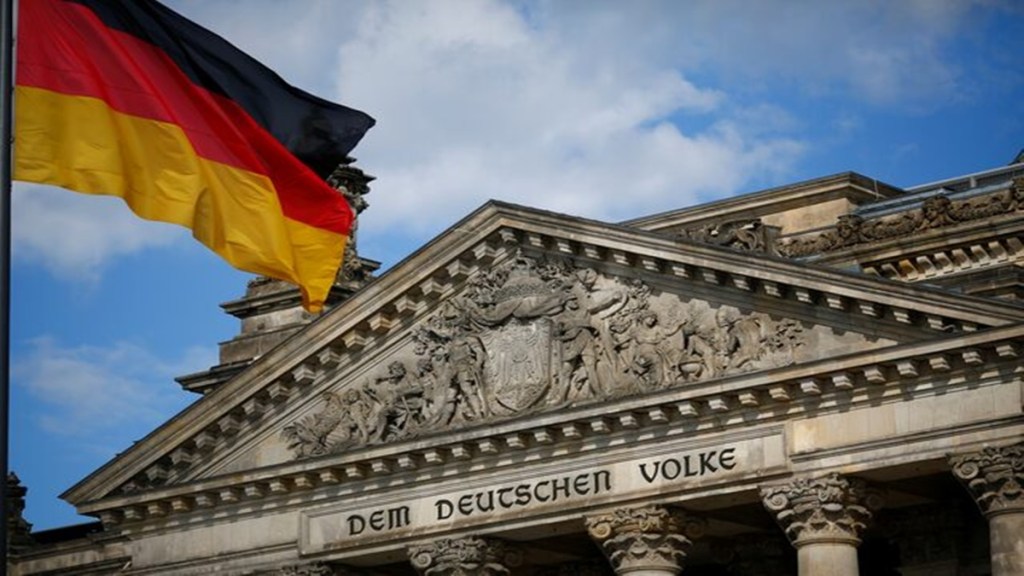That global politics has been taking a sharp right turn is well-known. But very few could have predicted that the once outcast Alternative for Germany (AfD) party would be able to so firmly establish itself in German politics. True, AfD is nowhere close to forming a government after the election results were announced, but that’s not the point.
The big deal is that AfD actually came in second and will be the principal opposition party. It is the first far-right party in Germany’s post-World War II history to have attained such broad levels of public popularity — it has doubled its support to 21% of the vote since the previous election in 2021, and has significantly increased its share of seats in the Bundestag, Germany’s parliament.
That’s a big leap for a party which secured its first seats in the Bundestag just eight years ago and has been treated with extreme suspicion by successive German governments for its strident anti-migrant rhetoric. Hopefully, AfD’s rising popularity will now force future German governments to stop treating far-right parties with disdain.
AfD’s rise means a big headache for Friedrich Merz, chairman of the conservative Christian Democratic Union, who is set to become Germany’s next chancellor. No longer tied with the liberal, “open door” policies of former Chancellor Angela Merkel, Merz has vowed to bring the party back to its more conservative roots as part of efforts to counter the far right. He surely faces a tricky road ahead.
It’s not a mere coincidence that high-profile figures from the Trump administration spoke out in support of the AfD in pre-election statements. In a scathing speech at the Munich Security Council, US Vice President JD Vance told Europe’s leaders that there is “no room for firewalls” in a democracy, a clear nod to the AfD.
Formed in 2013, the AfD started out as a party that opposed Germany bailing out other countries, mainly Greece, during the eurozone crisis. It won 4.7% of the vote in the election of that year. The AfD has since adopted various far-right and populist positions, opposing migrants and rejecting climate action.
But AfD’s rise is not an isolated phenomenon. In a reflection of voters’ dissatisfaction with the status quo, far-right political parties have won or made strong enough showings to challenge centre and leftist parties in France, Germany, Italy, Finland, Sweden, the Netherlands, and Croatia. It would thus be wrong to keep treating them as political outcasts. Italian Prime Minister Giorgia Meloni rightly slammed the global Left recently for what she called as their “hysteria” and hypocrisy over painting spectres about the global rise of conservative leaders. “When Trump, Meloni… Modi talk, they are called a threat to democracy. This is the Left’s double standard… but we are used to it, and the good news is people no longer believe in their lies, despite all the mud they throw at us. Citizens keep voting for us.”
She is bang on. It’s a fact that the economic vision articulated as the “Washington Consensus” — with a focus on free markets, trade liberalisation, fiscal discipline — began eroding with the 2008 financial crisis and the rise of China. It is now being challenged by Donald Trump in the very place of its origin.
At the heart of this lurch towards the right is economic discontent. Donald Trump’s “America First” slogan in the US has given the voters who felt neglected by years of economic transformation a ray of hope. Trump capitalised on the fear and frustration of middle-class Americans who felt they were not getting their due in an ever-globalising world.
Meloni’s Brothers of Italy party built its platform on a vision of national pride, advocating policies that would preserve Italian sovereignty in the face of what they saw as intrusive European Union regulations. The message from right-wing leaders in many countries, where economic growth has been low, unemployment elevated, national debt levels high, and inflation devastating to household budgets, focused on identity, sovereignty, and security of the nation.
Consider AfD’s spectacular rise to understand why economic discontent is the main reason for the surge of right-wing politics. The narrative in Germany has been for long been dominated by worries about the years-long stagnation of Europe’s biggest economy and pressure to curb migration. In any case, AfD has been doing relatively better in eastern Germany whose economy has historically been worse off than the west, and whose younger population often moves to the west in search of better education and job opportunities. Resentment against Germany spending money on helping other European countries when many of the country’s own citizens needed attention and aid, was the highest in the east. The AfD’s message about immigrants stealing the jobs of local people found a lot of resonance.
The main surprise, however, was that AfD gained some significant support in constituencies in the country’s west, including the industrial city of Gelsenkirchen which has been suffering with stagnating economy and high unemployment. That shows why economic woes are at the heart of the emergence of the Right.
In the US, before the November elections, about half of US voters said they were worse off than they had been at the end of Trump’s first term, even though inflation had slumped from 9% in 2022 to around 2% by late last year. In the UK, Rishi Sunak lost as voters saw prices had ballooned.
Large segments of the population can’t continue feeling financially disenfranchised, battered by a cost-of-living crisis, unaffordable housing, and bleak job prospects, while the elite who are making the policies grow richer. The lesson is loud and clear: When voters wake up feeling poorer every day, liberalism, free markets, open doors, and other such so-called noble thoughts have no meaning. The overwhelming feeling is: If taking a Right turn can protect my jobs, so be it.

